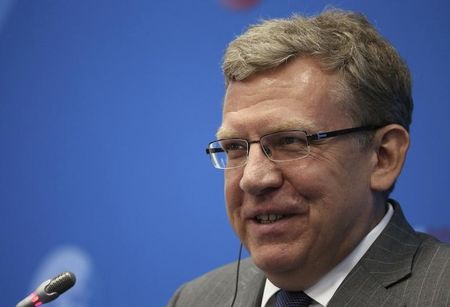MOSCOW (Reuters) - Russia's decision to divert pension savings to plug a budget hole next year threatens the long-term stability of government finances and will reduce investments, former finance minister Alexei Kudrin said on Friday.
A strong advocate of liberal reforms and fiscal prudence who is highly regarded by western investors, Kudrin headed the finance ministry from 2000 to 2011 before resigning following a clash with the Kremlin over rising defence spending.
"Today we are getting a government policy lowering economic growth, plus a 'shrinking' of the economy's possibilities and increasing uncertainty," he wrote in a column in daily newspaper Kommersant.
Kudrin's comments reflect widespread unease among business and many economic policymakers in Russia over the direction of economic policy, as the country turns its back on reforms seen as vital for long-term economic development.
On Tuesday, the government approved a plan to use contributions to employees' privately-managed pension funds to plug budget holes for a second year running. The move will divert around $8 billion to fund social security payments next year, at the expense of investment in financial markets.
Financial market players say that by starving local investors of funds, the decision is a key factor behind sharp falls in bond and share prices.
Kudrin suggested that the step was linked to the Ukraine crisis, with the Russian government anticipating difficult times in the next few years with no political resolution in sight.
In retaliation for sanctions over Ukraine, Moscow banned imports of most food from the West on Thursday, further fuelling an investor exodus from Russian markets.
"The concentration of resources at the expense of long-term stability - this is the result of the view that the task is to 'withstand' the next two or three years," Kudrin wrote.
Kudrin said investments in stocks or bonds were sure to deliver positive returns over the 20- to 25-year life of a pension plan, while government promises on paper to pay pensions were less reliable given a growing deficit in the State Pension Fund.
While President Vladimir Putin is believed to still respect Kudrin's advice, the former minister has no direct influence on policy.
On Wednesday a deputy economy minister, Sergei Belyakov, was sacked after publicly criticising the pensions decision on Facebook.

Belyakov wrote that he was "ashamed" of the decision and asked for public forgiveness for the "stupidity" of the government's actions.
(Reporting By Jason Bush, editing by John Stonestreet)
